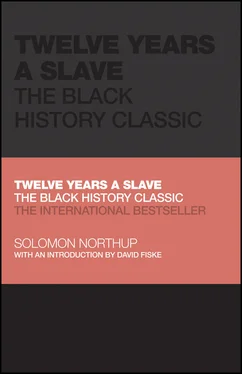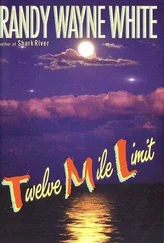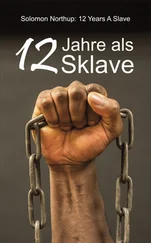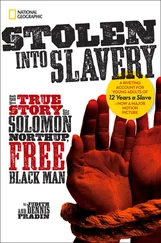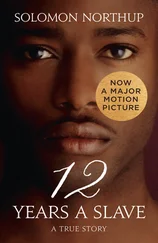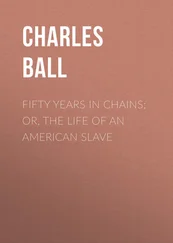Solomon Northup - Twelve Years a Slave
Здесь есть возможность читать онлайн «Solomon Northup - Twelve Years a Slave» — ознакомительный отрывок электронной книги совершенно бесплатно, а после прочтения отрывка купить полную версию. В некоторых случаях можно слушать аудио, скачать через торрент в формате fb2 и присутствует краткое содержание. Жанр: unrecognised, на английском языке. Описание произведения, (предисловие) а так же отзывы посетителей доступны на портале библиотеки ЛибКат.
- Название:Twelve Years a Slave
- Автор:
- Жанр:
- Год:неизвестен
- ISBN:нет данных
- Рейтинг книги:5 / 5. Голосов: 1
-
Избранное:Добавить в избранное
- Отзывы:
-
Ваша оценка:
- 100
- 1
- 2
- 3
- 4
- 5
Twelve Years a Slave: краткое содержание, описание и аннотация
Предлагаем к чтению аннотацию, описание, краткое содержание или предисловие (зависит от того, что написал сам автор книги «Twelve Years a Slave»). Если вы не нашли необходимую информацию о книге — напишите в комментариях, мы постараемся отыскать её.
Twelve Years a Slave
Twelve Years A Slave
An insightful introduction by David Fiske reveals the world into which Northup was born, the kidnapping phenomenon to which he fell victim, and the legacy of slavery today.
Twelve Years a Slave — читать онлайн ознакомительный отрывок
Ниже представлен текст книги, разбитый по страницам. Система сохранения места последней прочитанной страницы, позволяет с удобством читать онлайн бесплатно книгу «Twelve Years a Slave», без необходимости каждый раз заново искать на чём Вы остановились. Поставьте закладку, и сможете в любой момент перейти на страницу, на которой закончили чтение.
Интервал:
Закладка:
The eldest was a colored man named Clemens Ray. He had lived in Washington; had driven a hack, and worked in a livery stable there for a long time. He was very intelligent, and fully comprehended his situation. The thought of going south overwhelmed him with grief. Burch had purchased him a few days before, and had placed him there until such time as he was ready to send him to the New-Orleans market. From him I learned for the first time that I was in William's Slave Pen, a place I had never heard of previously. He described to me the uses for which it was designed. I repeated to him the particulars of my unhappy story, but he could only give me the consolation of his sympathy. He also advised me to be silent henceforth on the subject of my freedom; for, knowing the character of Burch, he assured me that it would only be attended with renewed whipping. The next eldest was named John Williams. He was raised in Virginia, not far from Washington. Burch had taken him in payment of a debt, and he constantly entertained the hope that his master would redeem him – a hope that was subsequently realized. The lad was a sprightly child, that answered to the name of Randall. Most of the time he was playing about the yard, but occasionally would cry, calling for his mother, and wondering when she would come. His mother's absence seemed to be the great and only grief in his little heart. He was too young to realize his condition, and when the memory of his mother was not in his mind, he amused us with his pleasant pranks.
At night, Ray, Williams, and the boy, slept in the loft of the shed, while I was locked in the cell. Finally we were each provided with blankets, such as are used upon horses – the only bedding I was allowed to have for twelve years afterwards. Ray and Williams asked me many questions about New-York – how colored people were treated there; how they could have homes and families of their own, with none to disturb and oppress them; and Ray, especially, sighed continually for freedom. Such conversations, however, were not in the hearing of Burch, or the keeper Radburn. Aspirations such as these would have brought down the lash upon our backs.
It is necessary in this narrative, in order to present a full and truthful statement of all the principal events in the history of my life, and to portray the institution of Slavery as I have seen and known it, to speak of well-known places, and of many persons who are yet living. I am, and always was, an entire stranger in Washington and its vicinity – aside from Burch and Radburn, knowing no man there, except as I have heard of them through my enslaved companions. What I am about to say, if false, can be easily contradicted.
I remained in Williams' slave pen about two weeks. The night previous to my departure a woman was brought in, weeping bitterly, and leading by the hand a little child. They were Randall's mother and half-sister. On meeting them he was overjoyed, clinging to her dress, kissing the child, and exhibiting every demonstration of delight. The mother also clasped him in her arms, embraced him tenderly, and gazed at him fondly through her tears, calling him by many an endearing name.
Emily, the child, was seven or eight years old, of light complexion, and with a face of admirable beauty. Her hair fell in curls around her neck, while the style and richness of her dress, and the neatness of her whole appearance indicated she had been brought up in the midst of wealth. She was a sweet child indeed. The woman also was arrayed in silk, with rings upon her fingers, and golden ornaments suspended from her ears. Her air and manners, the correctness and propriety of her language – all showed, evidently, that she had sometime stood above the common level of a slave. She seemed to be amazed at finding herself in such a place as that. It was plainly a sudden and unexpected turn of fortune that had brought her there. Filling the air with her complainings, she was hustled, with the children and myself, into the cell. Language can convey but an inadequate impression of the lamentations to which she gave incessant utterance. Throwing herself upon the floor, and encircling the children in her arms, she poured forth such touching words as only maternal love and kindness can suggest. They nestled closely to her, as if there only was there any safety or protection. At last they slept, their heads resting upon her lap. While they slumbered, she smoothed the hair back from their little foreheads, and talked to them all night long. She called them her darlings – her sweet babes – poor innocent things, that knew not the misery they were destined to endure. Soon they would have no mother to comfort them – they would be taken from her. What would become of them? Oh! she could not live away from her little Emmy and her dear boy. They had always been good children, and had such loving ways. It would break her heart, God knew, she said, if they were taken from her; and yet she knew they meant to sell them, and, may be, they would be separated, and could never see each other any more. It was enough to melt a heart of stone to listen to the pitiful expressions of that desolate and distracted mother. Her name was Eliza; and this was the story of her life, as she afterwards related it:
She was the slave of Elisha Berry, a rich man, living in the neighborhood of Washington. She was born, I think she said, on his plantation. Years before, he had fallen into dissipated habits, and quarreled with his wife. In fact, soon after the birth of Randall, they separated. Leaving his wife and daughter in the house they had always occupied, he erected a new one near by, on the estate. Into this house he brought Eliza; and, on condition of her living with him, she and her children were to be emancipated. She resided with him there nine years, with servants to attend upon her, and provided with every comfort and luxury of life. Emily was his child! Finally, her young mistress, who had always remained with her mother at the homestead, married a Mr. Jacob Brooks. At length, for some cause, (as I gathered from her relation,) beyond Berry's control, a division of his property was made. She and her children fell to the share of Mr. Brooks. During the nine years she had lived with Berry, in consequence of the position she was compelled to occupy, she and Emily had become the object of Mrs. Berry and her daughter's hatred and dislike. Berry himself she represented as a man of naturally a kind heart, who always promised her that she should have her freedom, and who, she had no doubt, would grant it to her then, if it were only in his power. As soon as they thus came into the possession and control of the daughter, it became very manifest they would not live long together. The sight of Eliza seemed to be odious to Mrs. Brooks; neither could she bear to look upon the child, half-sister, and beautiful as she was!
The day she was led into the pen, Brooks had brought her from the estate into the city, under pretence that the time had come when her free papers were to be executed, in fulfillment of her master's promise. Elated at the prospect of immediate liberty, she decked herself and little Emmy in their best apparel, and accompanied him with a joyful heart. On their arrival in the city, instead of being baptized into the family of freemen, she was delivered to the trader Burch. The paper that was executed was a bill of sale. The hope of years was blasted in a moment. From the height of most exulting happiness to the utmost depths of wretchedness, she had that day descended. No wonder that she wept, and filled the pen with wailings and expressions of heart-rending woe.
Eliza is now dead. Far up the Red River, where it pours its waters sluggishly through the unhealthy low lands of Louisiana, she rests in the grave at last – the only resting place of the poor slave! How all her fears were realized – how she mourned day and night, and never would be comforted – how, as she predicted, her heart did indeed break, with the burden of maternal sorrow, will be seen as the narrative proceeds.
Читать дальшеИнтервал:
Закладка:
Похожие книги на «Twelve Years a Slave»
Представляем Вашему вниманию похожие книги на «Twelve Years a Slave» списком для выбора. Мы отобрали схожую по названию и смыслу литературу в надежде предоставить читателям больше вариантов отыскать новые, интересные, ещё непрочитанные произведения.
Обсуждение, отзывы о книге «Twelve Years a Slave» и просто собственные мнения читателей. Оставьте ваши комментарии, напишите, что Вы думаете о произведении, его смысле или главных героях. Укажите что конкретно понравилось, а что нет, и почему Вы так считаете.
